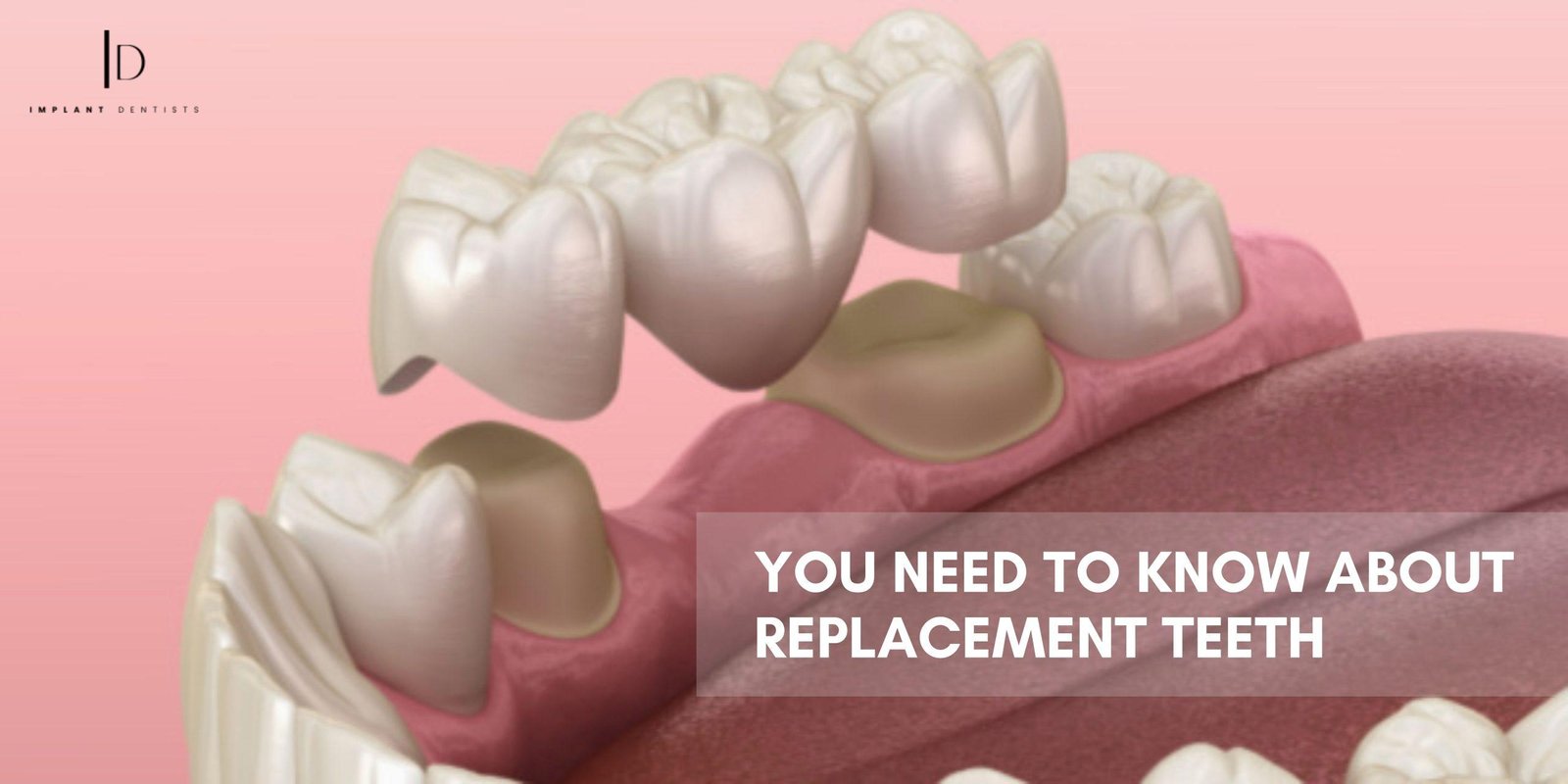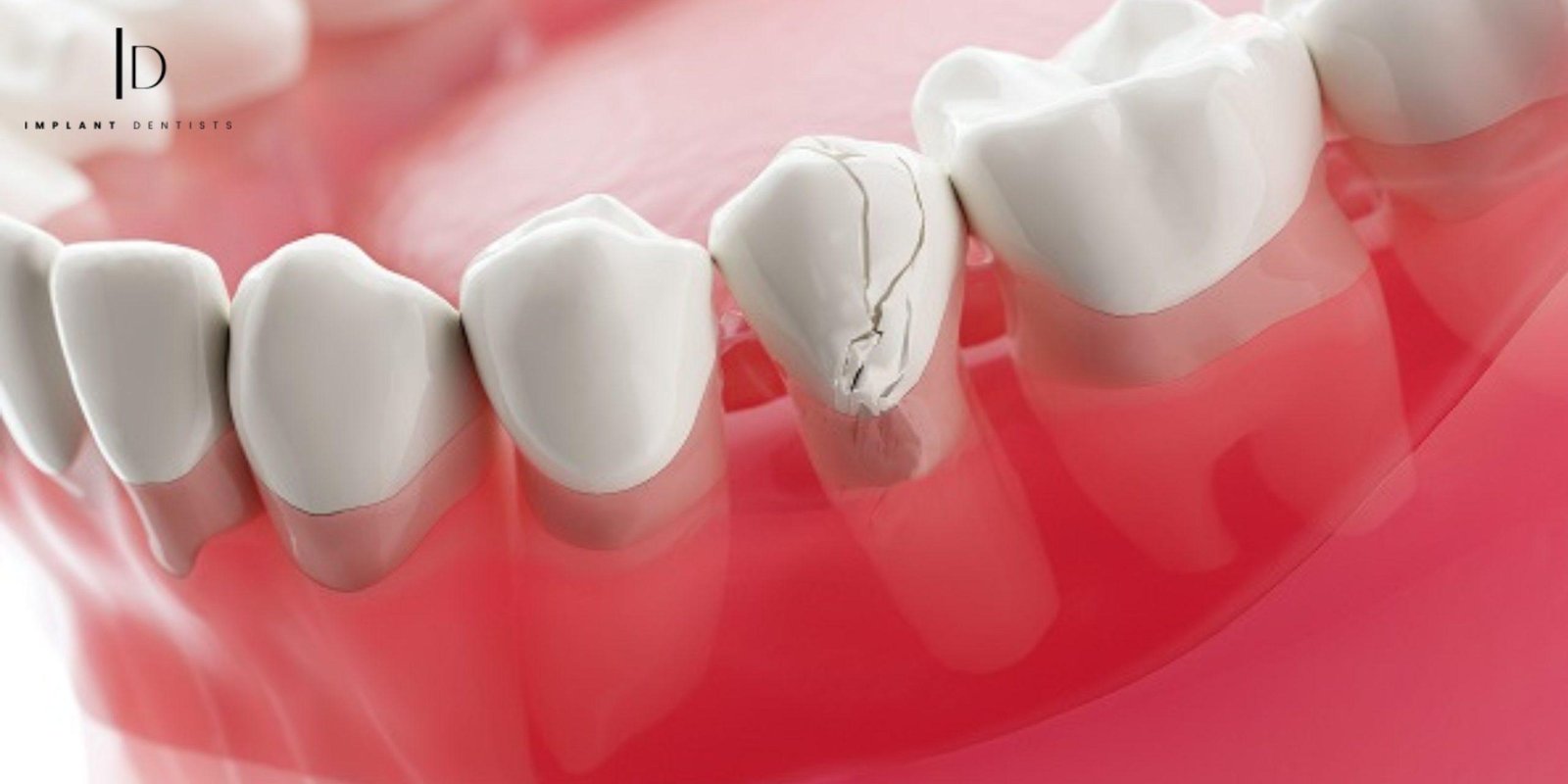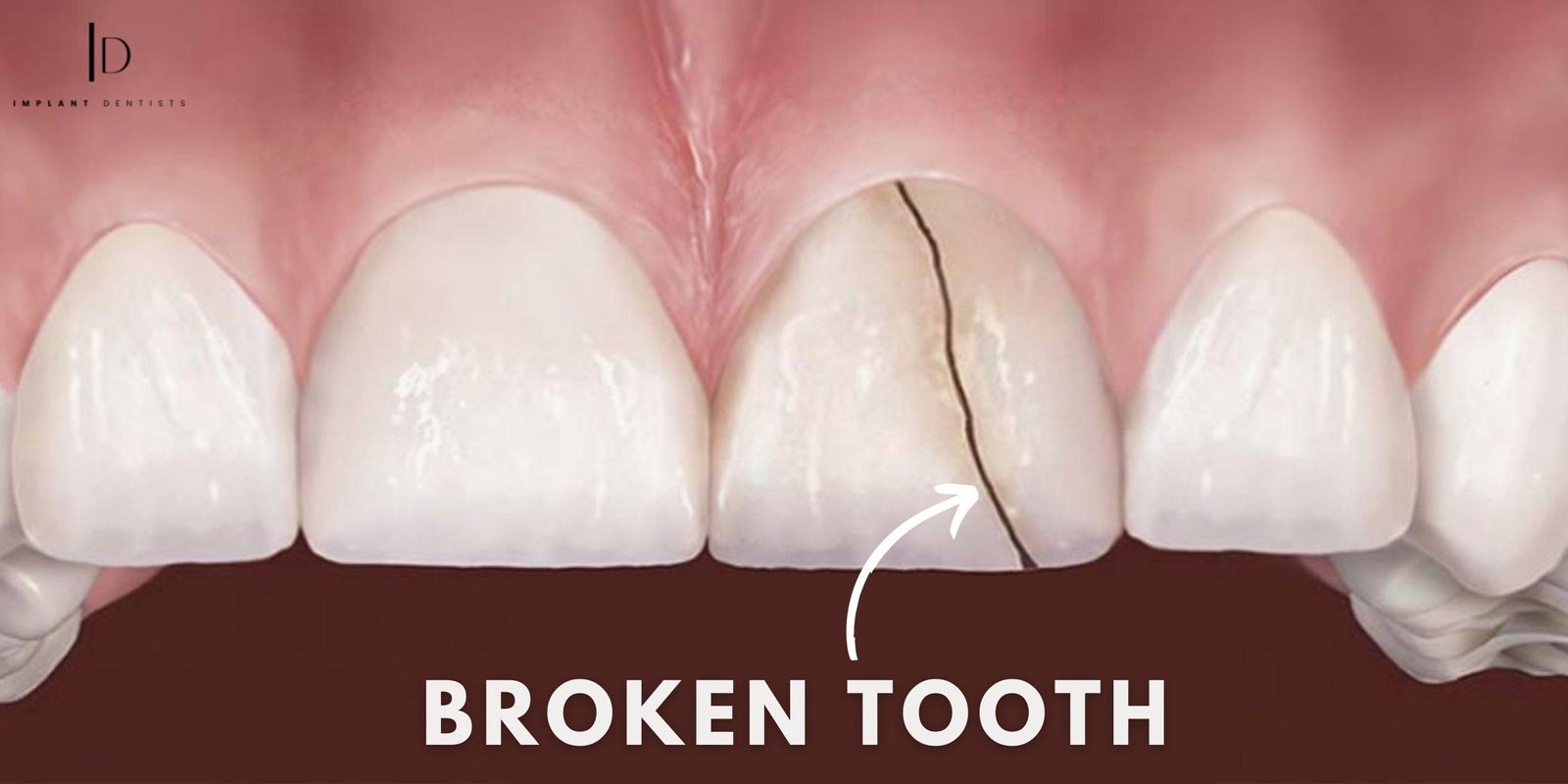Month: February 2024

Bridge to Confidence | Exploring Bridge Tooth Implants and Replacement Teeth
February 29, 2024Losing a tooth can be an unsettling experience, impacting not only your smile but also your confidence and oral health. Fortunately, advancements in dental technology have introduced various solutions to restore missing teeth, including bridge tooth implants and replacement teeth. We’ll explore everything you need to know about these options, from their benefits to the procedure and aftercare.
What are Bridge Tooth Implants and Replacement Teeth?
Bridge tooth implants and replacement teeth are advanced artificial solutions carefully crafted to seamlessly integrate into your smile. To join advanced dental technology with precision craftsmanship, these innovations fill the gaps left by missing teeth. They renew your confidence and oral well-being in the process. Engineered for durability and comfort, they provide a permanent fix that harmonizes with your natural teeth. This ensures seamless functionality and a radiant smile for years to come.
Bridge Tooth Implants
These bridges are constructed from high-quality materials, such as porcelain, ceramic, or resilient metal alloys. They offer exceptional strength and durability. The materials used in these bridges are not only strong but also carefully chosen. They harmonize with the surrounding teeth, ensuring a seamless blend within your smile.
Replacement Teeth
Replacement teeth border a diverse array of solutions tailored to various dental needs. Dentures are one of the most common options for replacing multiple missing teeth. They are removable prosthetic devices that provide functional and aesthetic restoration. Dentures come in two forms, full dentures for entire arches of missing teeth, and partial dentures designed to fill gaps caused by the absence of one or more teeth in specific areas of the mouth.
Dental implants stand out as a remarkable advancement in dental technology. These implants serve as artificial tooth roots surgically implanted into the jawbone. They offer a robust foundation for replacement teeth, whether it’s a single tooth or multiple teeth. Dental implants provide a permanent and stable solution, mimicking the natural tooth structure and function with exceptional durability and longevity.
Benefits of Bridge Tooth Implants and Replacement Teeth
- Restored Functionality: Bridge tooth implants and replacement teeth enable you to chew, speak, and bite properly, restoring full functionality to your mouth.
- Improved Aesthetics: These prosthetic solutions replicate the appearance of natural teeth, enhancing the aesthetics of your smile and boosting self-confidence.
- Prevents Dental Issues: Replacing missing teeth helps prevent dental problems such as shifting of adjacent teeth, bone loss, and temporomandibular joint disorders.
- Long-Term Solution: Bridge tooth implants and replacement teeth are durable and long-lasting, providing a reliable solution for missing teeth that can last for many years with proper care.
- Preserves Facial Structure: Dental implants help preserve bone density in the jaw, preventing the deterioration of facial structure associated with tooth loss.
Procedure for Bridge Tooth Implants and Replacement Teeth
- Consultation: The process begins with a consultation with your dentist or prosthodontist to assess your oral health and discuss treatment options.
- Treatment Planning: We develop a personalized treatment plan for you, taking into account your specific needs and preferences, considering the number of missing teeth, evaluating the condition of your remaining teeth, and keeping your overall oral health in mind.
- Preparation: For bridge tooth implants, the adjacent teeth serving as abutments are prepared by reshaping them to take in the dental bridge. For replacement teeth supported by dental implants, implant placement surgery is performed to anchor the artificial tooth roots in the jawbone.
- Fabrication: After preparing the abutments or placing dental implants, the dentist takes impressions of your mouth. They then fabricate custom-made bridge tooth implants or replacement teeth. The new teeth are made to match the colour, shape, and size of your natural teeth.
- Placement: The bridge tooth implants or replacement teeth are securely attached to the abutments or dental implants, restoring your smile and functionality.
- Follow-Up Care: After the procedure, you’ll receive instructions on how to care for your new teeth and maintain good oral hygiene to ensure long-term success.
Aftercare for Bridge Tooth Implants and Replacement Teeth
- Practice Good Oral Hygiene: Brush your teeth twice a day, floss daily, and rinse with an antimicrobial mouthwash to keep your mouth clean and free of bacteria.
- Attend Regular Dental Check-ups: Schedule regular follow-up appointments with your dentist. Have routine examinations and professional cleanings done to monitor the health of your bridge tooth implants or replacement teeth.
- Avoid Hard Foods: Be cautious when eating hard or sticky foods that could damage your prosthetic teeth or dental implants.
- Quit Smoking: Smoking can increase the risk of complications for bridge tooth implants or replacement teeth. Consider quitting smoking to improve the success rate.
- Protect Your Teeth: If you participate in activities that could potentially harm your teeth, such as contact sports, wear a mouth guard. To protect your prosthetic teeth and dental implants, wear a mouth guard during contact sports.
Conclusion
Bridge tooth implants and replacement teeth offer effective solutions for replacing missing teeth and restoring your smile. If you choose a dental bridge or dental implants, these prosthetic devices can significantly improve your oral health. They can also enhance your function and aesthetics. If you’re considering bridge tooth implants or replacement teeth, consult with a qualified dentist or prosthodontist. They can help you explore your options and create a treatment plan tailored to your needs. With proper care and maintenance, you can enjoy a beautiful, functional smile for years to come.

Restoring Your Smile | Everything You Need to Know About Replacement Teeth
February 21, 2024Losing a tooth can be a big deal. It affects not only your appearance but also your ability to eat, speak, and even your self-confidence. Thankfully, modern dentistry offers a variety of options to replace missing teeth and restore your smile to its former glory. Now, we’ll explore the different types of replacement teeth, their pros, and factors to consider when making your decision.
Filling the Gap: Common Types of Replacement Teeth
-
Dental Implants: Considered the gold standard, implants mimic natural teeth the most closely. A small titanium post is surgically placed in your jawbone, acting as an anchor for a crown. Implants are durable, aesthetically pleasing, and function like natural teeth. However, they’re also the most expensive option and require surgery.
-
Dental Bridges: Bridges are fixed restorations that “bridge” the gap left by missing teeth. They consist of artificial teeth attached to crowns cemented onto adjacent healthy teeth. Bridges are strong and natural-looking, but they require preparation of healthy teeth, which may not be ideal for everyone.
-
Dentures: These are removable prosthetics that replace multiple missing teeth. Full dentures cover all teeth in an arch, while partial dentures only fill in specific gaps. Dentures are generally more affordable than implants or bridges, but they may not fit perfectly and can impact speech and eating.
-
Partial Dentures with Implants: Combining implants with dentures offers the best of both worlds. Implants provide stability and prevent bone loss, while the denture fills in the gaps. This option is more expensive than regular dentures but offers superior comfort and function.
Choosing the Right Option: Factors to Consider
- Number of missing teeth: Implants are best for single teeth or multiple spaced apart. Bridges work well for a few consecutive missing teeth. Dentures are suitable for replacing all or most teeth.
- Jawbone health: Implants require sufficient bone mass for placement. Dentures might require bone grafting if bone loss is significant.
- Budget: Implants are the most expensive, followed by bridges, then dentures. Partial dentures with implants are more costly than regular dentures.
- Lifestyle and preferences: Consider your comfort level with removable options, the importance of aesthetics, and your maintenance needs.
5 Pros of Replacing Missing Teeth: Reclaim Your Smile and More!
Losing a tooth isn’t just an aesthetic concern; it impacts your physical and social well-being. Thankfully, modern dentistry offers various solutions to fill the gap and restore your smile’s glory. Beyond regaining that confident grin, here are 5 compelling benefits of replacing missing teeth:
- Eat Like a Champ: Imagine relishing a juicy steak or crunchy apple without struggling. Replacement teeth, especially implants and bridges, mimic natural teeth, allowing you to chew efficiently and enjoy a wider range of delicious foods. Say goodbye to soft diets and rediscover the joy of culinary adventures!
- Speak Clearly and Confidently: Missing teeth can slur your speech, causing self-consciousness and affecting communication. Replacements like dentures or implants improve pronunciation and enunciation, letting you express yourself clearly and confidently in every conversation. Speak your mind without hesitation!
- Boost Your Confidence: A complete smile radiates self-assurance. Replacing missing teeth can drastically improve your self-esteem, empowering you to smile brightly and engage in social interactions without holding back. Let your smile reflect your inner self!
- Protect Your Oral Health: Gaps left by missing teeth create spaces for food debris and bacteria, inviting gum disease and bone loss. Replacements prevent these issues, maintaining the health of your remaining teeth and jawbone. Invest in a healthy smile for the long term!
- Maintain Facial Structure: Missing teeth can cause facial muscles to sag, leading to premature aging and a sunken appearance. Replacements fill the gap, supporting facial tissues and preserving a youthful, healthy look. Age gracefully, not visibly!
Beyond the Basics: Additional Tips
- Consult a dentist: Discussing your individual needs and preferences with a qualified dentist is crucial for choosing the best option.
- Consider long-term implications: While cost might be an initial factor, consider the lifespan and maintenance costs of each option.
- Prioritize oral health: Regular dental checkups and proper oral hygiene are essential for maintaining any type of replacement teeth.
Replacing a missing tooth is a personal decision. By understanding the different options and carefully considering your individual needs, you can restore your smile with confidence and enjoy the benefits of a complete and healthy set of teeth.
Conclusion
Losing a tooth can feel like a loss of confidence and freedom. But fret not! Modern dentistry offers a range of replacement options, each with its own strengths and considerations. This blog served as a compass, guiding you through the different types of replacement teeth, implants, bridges, dentures, and their exciting hybrid – providing an overview of their pros, cons, and suitability based on your unique needs.
Remember, the choice for a replacement tooth is personal. By considering your budget, jawbone health, lifestyle, and aesthetic preferences, you can pave the way for an informed decision alongside your trusted dentist. Don’t let a missing tooth dim your smile – with the right approach, you can reclaim your confidence and rediscover the joy of a complete and healthy set of teeth. So, step out boldly, with a smile that shines brighter than ever!

The Complete Guide to Repairing Broken Teeth| Causes, Types, and Treatment Options
February 16, 2024
Saving Smiles| Exploring 5 Causes, Treatments & Benefits for Broken Tooth
February 5, 2024A broken tooth can be a worry and painful experience, affecting not just your oral health, but also your confidence in showcasing your smile. Fortunately, advancements in dental care have paved the way for effective broken tooth repair options. Broken tooth repair is a dental procedure designed to restore and renew a damaged or fractured tooth. It brings back functionality to the patient’s smile. Whether the result of an accident, injury, or decay, a broken tooth can cause discomfort, compromise oral health, and impact one’s confidence. Now, we’ll explore the causes of a broken tooth, available treatments, and the benefits of seeking prompt repair.
Causes of Broken Tooth
- Trauma or Injury: Accidents, falls, or sports related injuries can cause direct impact to the mouth, leading to a broken tooth. This can happen during activities like playing sports, falling, or any other situation where the mouth experiences forceful contact.
- Biting on Hard Objects: Chewing on hard substances such as ice, unpopped popcorn kernels, or non food items can lead to tooth breakage. The excessive force applied while biting down on hard objects can cause teeth to fracture or chip.
- Untreated Tooth Decay: Prolonged tooth decay weakens the structure of the tooth, making it more susceptible to breakage. When cavities are left untreated, they can progress and compromise the unity of the tooth, eventually causing it to break.
- Bruxism (Teeth Grinding): Regular teeth grinding, known as bruxism, can apply significant pressure on the teeth, leading to wear and tear. Over time, this constant grinding can weaken the coating and result in fractures or breaks in the teeth.
- Large Fillings or Weak Tooth Structure: Teeth with large fillings or those that have undergone extensive dental work may be more prone to breakage. The presence of a large filling can compromise the structural integrity of the tooth. If the filling is old or poorly done, the tooth becomes more susceptible to fractures.
Five Potential Treatments for a Broken Tooth
- Dental Bonding: Dental bonding is a common treatment for minor tooth fractures. It is often used for fractures caused by trauma or biting on hard objects. In this procedure, a tooth coloured resin is applied to the damaged tooth and then shaped and polished to restore its appearance and function.
- Fillings: If the broken tooth is a result of untreated tooth decay, a dental filling may be used to repair the damage. The decayed portion of the tooth is removed. A filling material is used to fill the cavity and restore the tooth’s structure.
- Dental Crowns: For more extensive tooth damage, such as a large fracture or a weakened tooth structure, a dental crown may be recommended. A dental crown is a custom made cap that covers the entire tooth, providing strength, protection, and restoring its appearance.
- Night Guards for Bruxism: If teeth grinding is the cause of the broken tooth, a dentist may recommend the use of a custom fitted night guard. This oral device is worn while sleeping to cushion the impact of grinding. It prevents further damage to the teeth.
- Root Canal Treatment: In cases where a broken tooth extends into the pulp, a root canal may be necessary. This involves removing the damaged pulp, cleaning and disinfecting the root canal, and then sealing it to prevent infection. After a root canal, a crown is often placed to strengthen and protect the tooth.
Benefits about Broken Tooth Treatment
- Improved Oral Health: Seeking timely broken tooth repair not only relieves pain but also contributes to overall oral health. Addressing fractures prevents the risk of infections and decay that may arise from exposed tooth pulp.
- Enhanced Aesthetics: Dental repairs, such as bonding, crowns, or veneers, go beyond functional benefits. They restore the natural appearance of the tooth. This boosts your confidence and allows you to smile freely without concerns about visible damage.
- Long-term Cost Savings: Investing in broken tooth repair can save you money in the long run. Addressing the issue promptly helps prevent further complications that may require more extensive and expensive dental procedures in the future.
- Restored Functionality: Repairing a broken tooth ensures that you can comfortably chew and eat without discomfort. This restoration of functionality is essential for proper digestion and overall well-being.
- Preservation of Natural Teeth: Certain treatments, like dental bonding and crowns, aim to preserve the natural structure of the tooth. This is advantageous compared to extraction, as it helps maintain the integrity of your natural teeth for as long as possible.
- Boosted Confidence: A healthy, well-maintained smile can significantly impact your self-esteem. By addressing a broken tooth promptly, you improve the physical aspects of your smile. You enhance your mental well-being by feeling more confident and comfortable in social situations. Address a broken tooth promptly to maintain this feeling.
- Customized Solutions: Dental professionals offer a range of repair options tailored to your specific needs. Whether it’s a minor chip or a more extensive fracture, there are personalized solutions that cater to the severity of the damage, ensuring optimal results.
Conclusion
In the journey to broken tooth repair, recognizing the causes is key. Understanding the signs and embracing the available treatment options are also important. Whether your tooth has suffered a minor chip or requires a more extensive restoration, the benefits of timely repair extend beyond pain relief. By promptly addressing a broken tooth, you not only alleviate discomfort but also prevent further damage, ensuring the longevity of your oral health. The array of treatment options, from dental bonding to implants, allows for personalized solutions tailored to your unique situation. Our dedicated dental care team is committed to delivering personalized and effective treatment for broken teeth. They help you regain confidence in your oral health with compassionate care.
